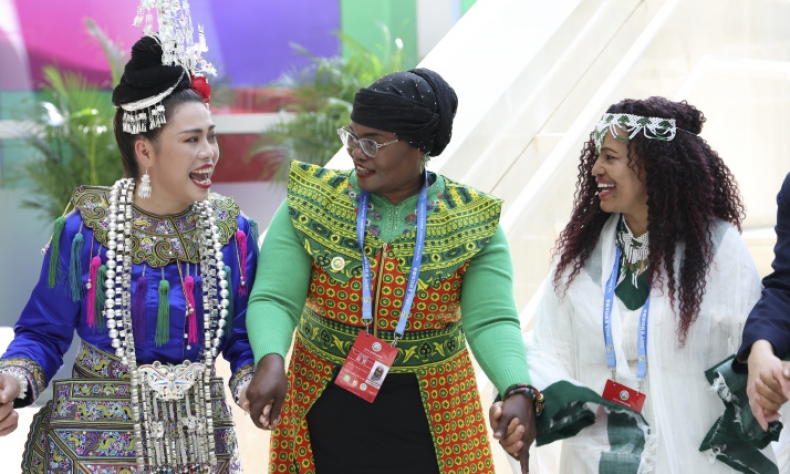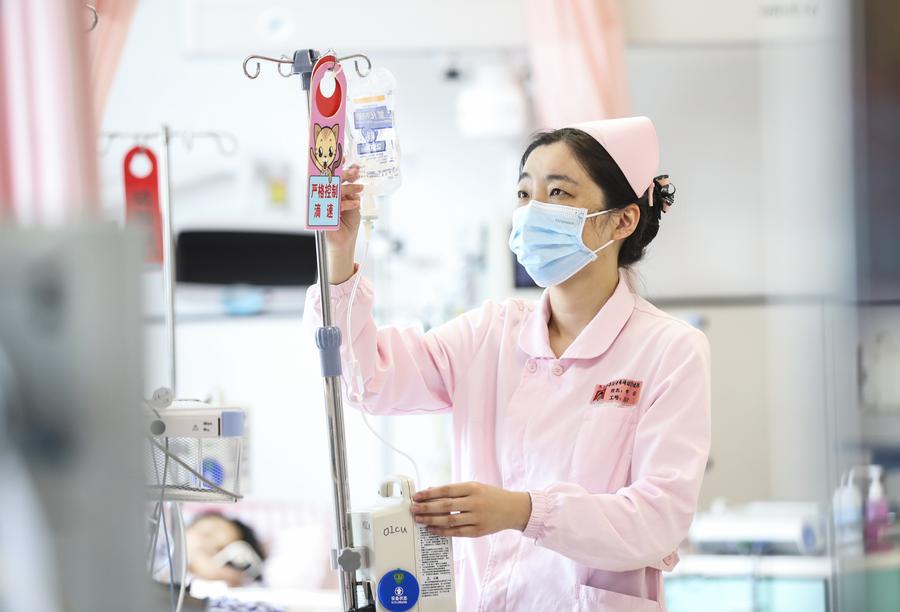From Liberation to Rejuvenation

Achieving gender equality globally remains an arduous task, one that has demonstrated its potential but also increasingly encountered headwinds.
Over the course of thousands of years, Chinese civilization, which has included numerous different cultural strands, has alternated between matriarchic and patriarchic values, and produced competing philosophical traditions. There have in fact been times when women ruled China, whether as empress, empress consort or empress dowager. Some of these, including the era of Empress Wu Zetian (665-705), saw upticks in gender equality, while others, like that of Empress Dowager Cixi (1861-1908), came hand-in-hand with a very retrograde male-privileged conservatism and was one of the nadirs of Chinese civilization, as existential crises mounted.
In Mao Zedong’s formative years, he was moved deeply by examples of Chinese women martyring themselves for liberation. He was no doubt familiar with cases like Qiu Jin, a member of the anti-Qing Guangfuhui, publishing a feminist newspaper, The Chinese Women’s Journal, and running a secret school that served as a training ground for women revolutionaries. He was touched by Zhao Wuzhen’s suicide in 1919, assessing it as the only escape she had from an oppressive feudal marriage system. Later, in his Report on an Investigation of the Peasant Movement in Hunan (1927), he not only valorized the revolutionary potential of peasants, which would later be enshrined as one of the major innovations of Chinese Marxism, he would also point especially to the revolutionary potential of women, who he observed forming women’s associations, asserting power, and helping establish a more equitable social justice.
It’s these histories that spring to mind after hearing President Xi Jinping’s recent speech at the Global Leaders’ Meeting on Women in Beijing, especially after he invoked Mao’s famous phrase, “Women hold up half the sky.” Nevertheless, President Xi is understandably proud of the Communist Party of China’s commitment to women’s liberation and the historical achievements of freeing them from polygamy, concubinage, and forced and arranged marriages, child betrothal and the sale of women—all of which was codified in 1950 Marriage Law. Since then, China has passed and enforced protections against domestic violence, improved divorce protections, and ensured women’s equal rights in property ownership.
Today, Chinese women outnumber men in higher education, outnumber men among Internet entrepreneurs, and their political status has grown significantly, with 26.5 percent of the seats in the National People’s Congress, the top legislature, now held by women. By comparison, U.S. Congress is 28.2 percent, the Japanese Diet is 15.7 percent in the lower house and 29.4 percent in the upper, and the Republic of Korea’s National Assembly is just over 20.3 percent, indicating Chinese female political participation is comparable to and in some cases exceeds these other countries despite still trailing them considerably in overall national development levels.
Chinese women have dramatically increased their participation in the labor force, helping them achieve greater economic independence. The principle of equal pay for equal work is central to official socialist policymaking and has been largely implemented in many sectors. Women enjoy workplace protections, including paid maternity leave, while discrimination due to marriage or pregnancy is prohibited. Along the way, hundreds of millions of women and girls have been lifted out of extreme poverty and lived longer, healthier lives. Indeed, China achieved the UN Millennium Development Goals for maternal health ahead of time, with the maternal mortality rate falling by near 80 percent between 1995 and 2025. Today, life expectancy for Chinese women exceeds 80 years, more than double what it was in 1950, based on available data.

China is not alone in its commitments to gender equality and the role it plays in human progress. As President Xi pointed out, equality between men and women is now a universal consensus of the international community. It has been included in UN development agenda and priority development targets, and 189 countries have ratified the Convention on the Elimination of All Forms of Discrimination Against Women. He also noted that nearly 1,600 laws on women’s rights and interests have been enacted by more than 190 countries, and more and more countries have made national action plans to improve women’s wellbeing. As a result of these developments, he noted prominent progress has been achieved in women’s empowerment. Their educational attainment has been steadily improving, and women are playing an ever more important role in economic, political, cultural, and social affairs. A great many outstanding women have stepped up to take the international stage, living their lives to the full and making contributions with their wisdom and strength.
Nevertheless, he also acknowledged that achieving gender equality globally remains an arduous task, one that has demonstrated its potential but also increasingly encountered headwinds. Economic disparity remains a major concern, and even in China gender wage gaps sometimes persist. Both Chinese women and others around the world still face various forms of cultural pressure and discrimination in their personal and professional lives. Progress has been uneven and sometimes encountered recalcitrant patriarchal attitudes.
Globally, President Xi pointed out, over 600 million women and girls are still mired in war and conflict, and around 10 percent of women and girls are trapped in extreme poverty. At the same time, deep-rooted problems such as violence and discrimination still persist, the gender digital divide is widening, and equality between men and women remains a lofty yet arduous task.
To continue to make advances, he called for fostering an enabling environment for women’s growth and development, including upholding the vision of common, comprehensive, cooperative and sustainable security, so that all women can bask in the sunlight of happiness and tranquility and stay away from the shadow of war and turmoil. He called for enhancing the protection of women and girls in regions struck by war, conflict, poverty or natural disaster, supporting the vital role of women in preventing conflict and rebuilding their homes, and improving mechanisms against violence and resolutely crack down on all forms of violence against women.
Additionally, he called on the world community to do a better job of ensuring women participate in modernization, including the “new wave of scientific and technological revolution and industrial transformation,” and support them in playing an even bigger role in green development. He also noted the need to jointly develop governance frameworks to protect women’s rights and interests, and to do so via multilateral institutions like the UN as well as by creating new platforms for women to cooperate with each other internationally.
In these ways, both China and the other nations of the world can continue to take concrete steps toward achieving their national development goals while also promoting peace, development and a shared future for humanity.
The author is a professor of politics and international relations and director of the Center for Ecological Civilization at East China Normal University in Shanghai. He is also a senior research fellow with the Institute for the Development of Socialism with Chinese Characteristics at Southeast University in Nanjing.
 Facebook
Facebook
 Twitter
Twitter
 Linkedin
Linkedin
 Google +
Google +










